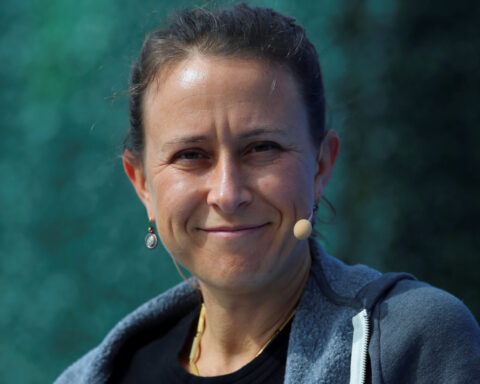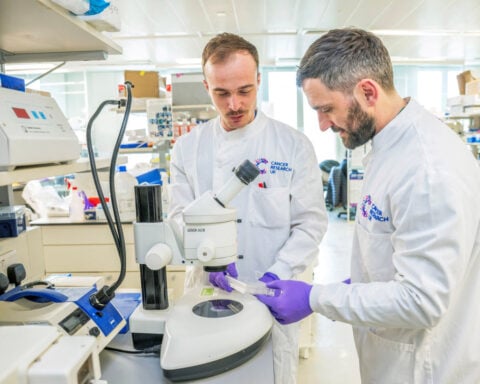BERLIN (AP) — The head of this year’s United Nations’ climate talks called Thursday for governments and businesses to tackle global warming by reducing greenhouse gas emissions in all regions and sectors if they want to stop the planet from passing a key temperature limit agreed on more than seven years ago.
Sultan al-Jaber of the United Arab Emirates, who also heads one of the country's state oil companies, told senior officials from Europe, Canada and China gathered in Brussels that record-breaking heat seen in parts of the world recently shows the need for urgent action to curb emissions.
Laying out his strategy for the upcoming COP28 global climate talks in Dubai this fall, al-Jaber said that leaders “must be brutally honest" about what has caused the sharp rise in temperatures since preindustrial times and how to stop them from climbing further.
While many fossil fuel companies have pledged to reduce direct and indirect emissions from their operations — known as scope 1 and 2 — many have refused to take responsibility for the scope 3 emissions resulting from sources they don't own or control, such as consumers using their gas. The latter make up the majority of emissions, and cutting those effectively means reducing demand for fossil fuels.
"We need to attack all emissions, everywhere. One, two and three,” al-Jaber said, adding that he plans to bring together governments, major energy producers and heavy emitting industries to develop a practical plan for limiting global warming to 1.5 degrees Celsius (2.7 Fahrenheit) in line with the 2015 Paris climate accord.
Scientists say achieving this target requires halving global emissions by 2030 and current efforts are far off track. Many have expressed skepticism that technological solutions touted by the fossil fuel industry and some governments can deliver the reductions necessary to meet that goal in the near term.
Still, al-Jaber said the world must “use every emission-busting tool available, including nuclear, battery storage and carbon capture and removal technologies, especially for the hardest to abate sectors.”
He also called for a sharp increase in renewable energy production and funds to help developing countries make the transition away from polluting fuels and cope with the impacts of climate change.

 Trump has begun another trade war. Here's a timeline of how we got here
Trump has begun another trade war. Here's a timeline of how we got here
 Canada's leader laments lost friendship with US in town that sheltered stranded Americans after 9/11
Canada's leader laments lost friendship with US in town that sheltered stranded Americans after 9/11
 Chinese EV giant BYD's fourth-quarter profit leaps 73%
Chinese EV giant BYD's fourth-quarter profit leaps 73%
 You're an American in another land? Prepare to talk about the why and how of Trump 2.0
You're an American in another land? Prepare to talk about the why and how of Trump 2.0
 Chalk talk: Star power, top teams and No. 5 seeds headline the women's March Madness Sweet 16
Chalk talk: Star power, top teams and No. 5 seeds headline the women's March Madness Sweet 16
 Purdue returns to Sweet 16 with 76-62 win over McNeese in March Madness
Purdue returns to Sweet 16 with 76-62 win over McNeese in March Madness







